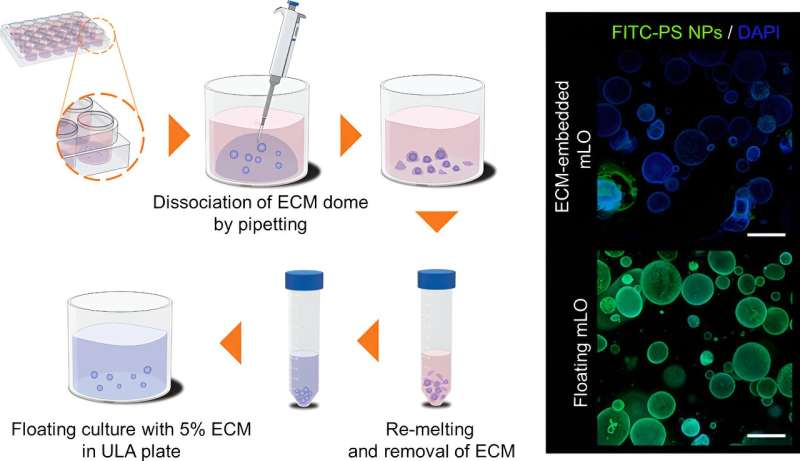New organoid culture method can verify human toxicity of nanomaterials
Date: 26.6.2024
The Korea Research Institute of Standards and Science (KRISS) has developed the world's first organoid culture method capable of accurately assessing human toxicity of nanomaterials.
 Overcoming the limitations of the conventional culture method, this new technology is expected to bring forward the commercialization of organoid-based safety assessment of nanomaterials and nanomedicine.
Overcoming the limitations of the conventional culture method, this new technology is expected to bring forward the commercialization of organoid-based safety assessment of nanomaterials and nanomedicine.
In the conventional organoid culture method, cells are embedded in the extracellular matrix and solidified in the shape of a dome to form a three-dimensional structure; then a culture medium is added to culture the cells. In this method, the thickness of the extracellular matrix dome varies at the center and the edge, causing an oxygen supply imbalance.
As a result, the organoids fail to grow uniformly; instead, they aggregate in the dome like bubbles and thus are difficult to divide. The biggest problem is that nanomaterials cannot penetrate into the dome, so their impact on the organoids cannot be accurately confirmed. In the newly-developed organoid culture method, the extracellular matrix is directly mixed with the culture solution to culture organoids in a floating manner.
Image source: Korea Research Institute of Standards and Science (KRISS).























